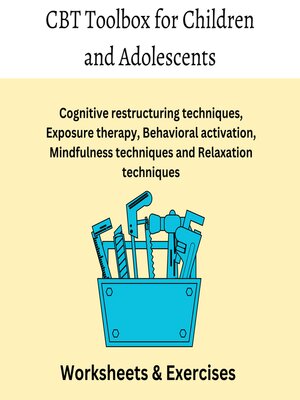CBT Toolbox for Children and Adolescents
audiobook (Unabridged) ∣ A Comprehensive Guide to Evidence-Based Techniques, Interventions and Strategies for Cognitive restructuring techniques, Exposure therapy, Behavioral activation
By Russell Edna Hopkins

Sign up to save your library
With an OverDrive account, you can save your favorite libraries for at-a-glance information about availability. Find out more about OverDrive accounts.
Find this title in Libby, the library reading app by OverDrive.



Search for a digital library with this title
Title found at these libraries:
| Library Name | Distance |
|---|---|
| Loading... |
This audiobook is narrated by a digital voice.
The CBT Toolbox for Children and Adolescents is a comprehensive guide designed to provide mental health professionals and educators with evidence-based techniques, interventions, and strategies to support the emotional and behavioral well-being of children and adolescents. This extensive resource combines the latest research in cognitive-behavioral therapy (CBT) with practical, easy-to-use exercises that can be seamlessly incorporated into your work with young clients.
Organization and Contents:
The CBT Toolbox for Children and Adolescents is organized into several sections, each focusing on different aspects of CBT, such as cognitive restructuring, behavioral activation, problem-solving, and relaxation techniques. Within each section, you will find step-by-step instructions for implementing various interventions, along with tips and strategies for adapting these approaches to meet the unique needs of your clients.
Cognitive Restructuring:
This section focuses on techniques for identifying and challenging negative thought patterns, helping children and adolescents develop healthier, more adaptive ways of thinking. Exercises include thought records, cognitive distortions identification, and Socratic questioning.
Behavioral Activation:
In this section, you will find strategies for increasing engagement in positive, rewarding activities to improve mood and overall well-being. Techniques covered include activity scheduling, goal setting, and overcoming barriers to participation.







